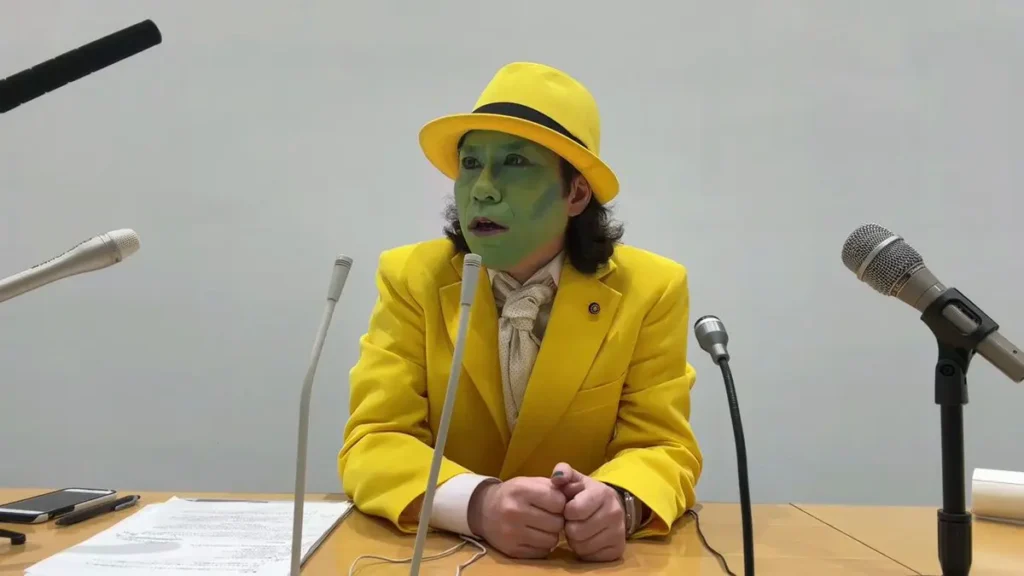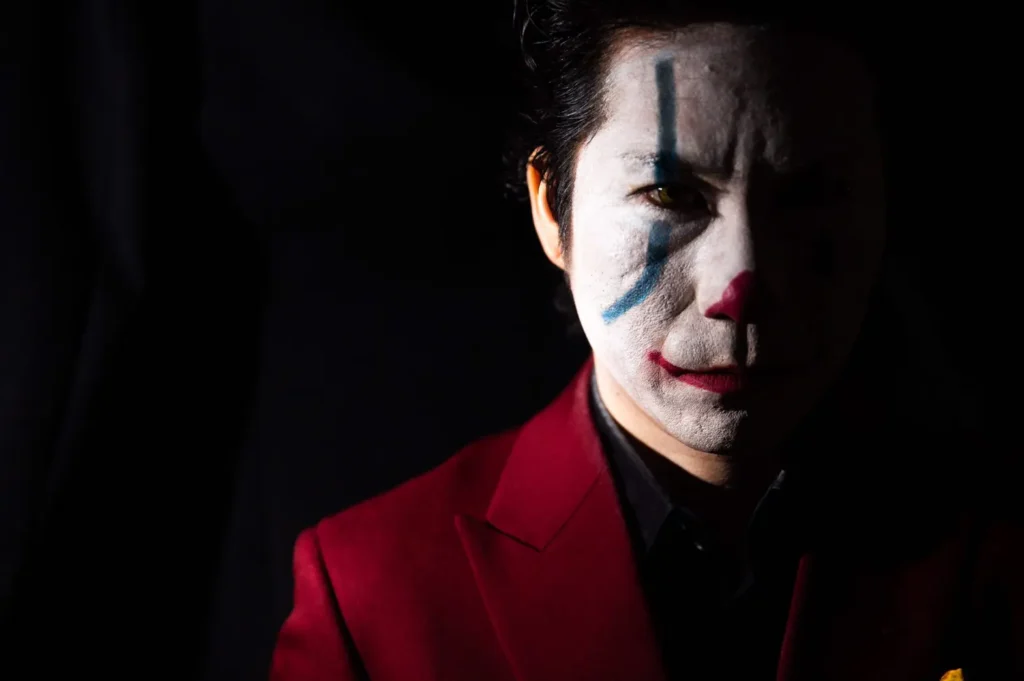
Japan’s Joker is shaking up the Tokyo gubernatorial race with his eccentric campaign. Yusuke Kawai, also known as the Japanese Joker, is making headlines for his flamboyant style, unconventional policies, and controversial posters. From advocating polygamy to proposing the legalization of marijuana, Joker Japan has turned this election into an unprecedented spectacle. But who exactly is Kawai, and what does he stand for?
A Campaign Like No Other

Japan’s Joker is no ordinary politician. Instead of a traditional approach, he campaigns dressed as the Joker from Batman and Stanley Ipkiss from The Mask. His bold presence has turned him into a viral sensation, drawing comparisons to past eccentric candidates in Japan. However, beyond the theatrical performances, Joker Japanese has sparked heated debates on societal norms and reforms.
Despite his unconventional methods, Kawai, like all other candidates, was granted television time to present his policies. In Japan’s democracy, every candidate—regardless of their background or campaign style—has the right to speak to the public and share their vision for the future. This ensures a fair election process where all voices, even the most unorthodox, can be heard equally.
Japan ranks highly in global democracy indexes, consistently scoring well for political participation, electoral processes, and civil liberties. According to the Democracy Index 2023, Japan holds a score of 8.33, classifying it as a full democracy. This robust democratic framework ensures that even unconventional candidates like Yusuke Kawai have a platform to share their ideas and challenge the status quo.
Controversial Campaign Posters
Kawai’s campaign posters have caused significant controversy across Tokyo. Some of the most talked-about ones include:
- Polygamy Promotion: In one poster, he is dressed as The Mask, surrounded by three women, advocating for polygamy as a solution to Japan’s declining birth rate.
- Marijuana Legalization: Another poster features Kawai in his Joker attire, holding green leaves, proposing to rename Shibuya to “Shabuya” (a play on the Japanese slang term for stimulants, “shabu”).
- Freedom of Expression: Perhaps the most divisive was a poster featuring near-naked gyaru model Miu Sakurai, which he claimed was a statement on freedom of expression. The posters were quickly taken down after public backlash and police warnings.
Despite the controversy, Japan’s Joker remains unapologetic, stating that his campaign aims to challenge societal norms and highlight pressing issues in Japan.
Who is Yusuke Kawai?

Born in Kansai in 1981, Kawai’s journey to politics has been anything but conventional. After graduating from Kyoto University, he worked for an IT company before launching his own human resources business. However, his true passion lay in entertainment. In 2018, he joined Watanabe Entertainment after completing their comedy school program, transitioning into the world of performance and satire.
His first major foray into politics came in 2021 when he ran for governor of Chiba dressed as the Japanese Joker, a move that gained nationwide attention. Before his Tokyo gubernatorial bid, Kawai served as a Soka City council member in Saitama Prefecture, demonstrating that his political ambitions are not just for show.
Zany Candidates in Tokyo’s Political Scene
Tokyo’s gubernatorial elections have a history of attracting unconventional candidates. Some notable figures from past elections include:
- Dr. Nakamats: A prolific inventor known for his eccentric campaign promises and bizarre inventions.
- Yuya Uchida: The late rock star whose candidacy was as unconventional as his music career.
- Teruki Goto: A nationalist who famously campaigned naked.
Compared to these figures, Japan’s Joker may be the most theatrical yet, but it is certainly not out of place in Japan’s unique political landscape.
The Public’s Reaction
Kawai’s campaign has divided public opinion. Some see him as a much-needed disruptor, challenging Japan’s often rigid political system. Others view his approach as a mere publicity stunt that distracts from real policy discussions. Social media has been abuzz with reactions ranging from amusement to outrage, with his posters sparking heated online debates.
Political analysts argue that while Kawai’s campaign is unlikely to lead to victory, it does highlight important social issues in an unconventional way. His stances on polygamy, marijuana, and freedom of expression push boundaries and force mainstream politicians to acknowledge topics they might otherwise avoid.
Could Kawai Actually Win?
While his campaign has gained widespread media coverage, Japan’s Joker remains an underdog in the race. Incumbent governor Yuriko Koike and high-profile challenger Renho are seen as the frontrunners. However, Japan’s voting system allows for unexpected results, and Yusuke Kawai’s visibility might translate into a surprising number of votes.
Political experts suggest that even if he doesn’t win, Kawai could still influence the election by drawing attention to issues typically overlooked in mainstream debates. His ability to engage younger voters and social media users gives him a platform that traditional candidates often struggle to access.
Conclusion: A Campaign That Leaves an Impression
Whether seen as a performance artist, a social commentator, or a serious politician, Japan’s Joker is undeniably one of the most memorable figures in recent history. His use of satire, controversial proposals, and theatrical presence have sparked conversations about Japan’s political landscape, social issues, and voter engagement.
Japan’s democratic values ensure that every candidate, regardless of their campaign style, receives equal opportunities to share their message. With a Democracy Index score of 8.33, Japan is classified as a full democracy, reinforcing the principle that every voice—no matter how unconventional—has the right to be heard. This principle of fairness has allowed Kawai’s unique approach to reach a broad audience, ensuring that all perspectives are included in the political conversation.
While the likelihood of his victory remains low, Kawai has already succeeded in making his mark. In a political environment often criticized for being rigid and uninspiring, Japan’s Joker has added a much-needed dose of color and controversy. His campaign is a testament to the power of unconventional approaches in modern politics, proving that even the most eccentric candidates can influence public discourse.
Whether Tokyo is ready for a governor dressed as the Joker remains to be seen, but one thing is certain: Japan’s Joker will not be forgotten anytime soon.
More about Tokyo? Here!
Stay ahead of the game with exclusive travel tips, insider guides, and behind-the-scenes stories—subscribe now and never miss an adventure! 🚀✈️






